Why the SBC Should Pass a Resolution Protecting God’s Honor and Defending Religious Liberty in Indianapolis
Earlier this month, the United States House of Representatives voted to pass the “Antisemitism Awareness Act.” One of the most controversial aspects of this bill is that it outsources the legal definition of antisemitism used for enforcing Title VI of the Civil Rights Act to an intergovernmental organization known as the International Holocaust Remembrance Alliance (IHRA).
The bill received overwhelming support within the House, passing 320-91, with only a few of the most stalwart conservative Republicans, like Rep. Chip Roy (R-TX), speaking out against it. Rep Roy explained that the “definition of ‘anti-Semitism’ used by this bill was created by an international organization and includes certain examples that pose First Amendment concerns.”
The public response, however, has been far less favorable than the vote in the House would suggest. Many concerns have been raised by conservative and liberal advocacy groups alike, with many pointing out the severe danger to religious freedom that this bill presents.
Important (and Concerning) Information about the IHRA
The IHRA definition of antisemitism is extraordinarily vague and unclear, allowing for abuse by those who wish to see the Christian religion erased from the public square. The illustrations provided by the IHRA are especially concerning, as they show that this definition could easily be used to classify certain portions of Scripture as antisemitic hate speech.
This bill gives an intergovernmental agency unaccountable to the American people the authority to define what Americans are permitted to say or do. It is especially troubling that the IHRA is primarily led by delegates from countries that do not value religious freedom, with the President and two-thirds of the IHRA Committee Chairs representing countries that Pew Research has determined to have a high level of religious restriction. Here is just one glaring example of what I mean: One of the IHRA working groups is chaired by a delegate from Finland, where Päivi Räsänen will stand on trial for the third time as part of an extended campaign by the Finnish government to punish Räsänen for the “hate crime” of tweeting a Bible verse.
The ERLC vs. The Consensus Opinion on the Threat of this Legislation
The bottom line is that this bill represents a serious threat to religious liberty. Thankfully, many serious Christian thinkers and public figures have voiced strong objections. Albert Mohler, President of the Southern Baptist Theological Seminary, believes that this legislation is dangerous and deeply flawed. In his recent editorial for World Opinions, Dr. Mohler warned that “orthodox Biblical Christianity—even the simple preaching of the gospel—could be directly targeted by this kind of language. For that matter, by this loose logic the entire New Testament can be targeted as hate speech—just start with the Gospel of John. It’s almost as if this definition had been constructed to serve the ends of liberal theology. It will be even more dangerous in the hands of modern secularists.”
Kristen Waggoner, the President of Alliance Defending Freedom, also pointed out that legislation like this has already been weaponized in places like Europe to jail individuals for expressing viewpoints their governments dislike. Andrew T. Walker, a Southern Baptist professor of ethics and public theology, wrote that the bill relies on problematic definitions of antisemitism that veer into viewpoint-based restrictions.
And it is not just Christians who have voiced opposition to the Antisemitism Awareness Act. Many Jews, the very group that this bill claims to protect, have spoken out against this legislation. The editors of Tablet, an influential Jewish magazine, published a scathing critique of the bill titled Not In Our Name that chastised Congress for this clumsy and dangerous attack on religious freedom. Yoram Hazony bluntly stated, “Anything that relies on the confused IHRA definition of anti-Semitism is a problem.” Conservative political commentator Ben Shapiro and even the liberal Rep. Jerry Nadler (D-NY) have joined the growing number of Jewish voices publicly opposing this bill.
Given the significant threat to religious liberty that the Antisemitism Awareness Act represents, we might expect the Ethics and Religious Liberty Commission of the Southern Baptist Convention (ERLC)—an entity explicitly charged with defending religious freedom—to join the chorus of opposition.
Instead, the opposite happened.
Almost immediately upon the passing through the House, the ERLC issued a press release in which Brett Leatherwood, speaking in an official capacity as a spokesman for Southern Baptist churches, commended the passage of the Antisemitism Awareness Act. If you are not shocked that the head of the ERLC is celebrating a bill that endangers religious freedom, then your lack of surprise should sadden you.
My Personal Concerns
As a Christian, I am offended by a bill that would slander God’s character and disparage any portion of His Word as hateful.
As a pastor of a Southern Baptist church, I am disappointed. I serve a wonderful church whose members give cheerfully and sacrificially, trusting that every dime will be stewarded in a way that honors Christ. The members of my church expect that the entities we help fund will faithfully discharge the duties entrusted to them, including advocating for religious liberty.
As a doctoral student at an SBC seminary, I am confused. In recent days, the historic Baptist commitment to religious liberty has been wielded as a club during debates over how Southern Baptists ought to view politics. How is it that, in a matter of just a few weeks, religious liberty has gone from being a sine qua non of Baptist identity to something so quickly jettisoned?
As an American, I am frustrated. Freedom of religion and freedom of speech are two of the most foundational principles of this nation. How can we allow American laws to be defined by representatives from countries that do not value these freedoms? How can we be so naïve as to think that countries that have consistently shown themselves hostile to Christianity should be put in a position to define what American Christians are allowed to say?
And finally, as a Christian who is ethnically Jewish, I am saddened. The Lord saved me as a student through the faithfulness of a Christian who gave me a copy of God’s Word. Even though my physical appearance is unmistakably that of an Ashkenazi Jew, the man who gave me that Bible cared more about my eternal soul than whether I’d perceive him as antisemitic. The very act that God used for His glory and my eternal good is threatened by this legislation, and I am heartbroken that there are Southern Baptists who would support such restrictions while patting themselves on the back over how anti-antisemitism they are.
The outspoken atheist Penn Jillette once said, “How much do you have to hate somebody to believe that everlasting life is possible and not tell them?”
How is it that an atheist can see what some Southern Baptists cannot? If we are genuinely committed to fighting antisemitism, how can we support a law that would try to prevent the whole counsel of God from being shared with our Jewish neighbors so that they might be saved by grace alone, through faith alone, in Christ alone, as revealed in Scripture alone?
The Word of the Lord is a stone of stumbling and a rock of offense. Our call as Christians is not to hide the stone so that no one is offended by it but to boldly proclaim the whole counsel of God so that many, including many Jews, may be saved for the glory of God.
How Southern Baptists Can Respond: A Resolution to Defend the Bible and Religious Liberty in America
After much prayer and with the support of my fellow elders, I intend to submit the resolution below for the 2024 Southern Baptist Convention meeting.
Southern Baptists are a “people of the Book.” We believe the Bible, every jot and tittle of it. We stand by the most socially acceptable passages and the ones that cause the greatest offense to those who reject Jesus as Lord. And we are committed to proclaiming the truth of God’s Word no matter how much the culture or the government opposes it.
At the same time, we would be foolish to welcome the possibility of increased governmental censorship of Christian speech or cheer on any threats to our First Amendment freedoms in America. By passing this Resolution, Southern Baptists can make it clear that Baptists are still committed to defending the Bible and our Christian liberty in America.
Therefore, I respectfully ask the Resolutions Committee to bring this Resolution before the messengers for consideration and, with humility, ask the messengers to vote in favor of it.
On Religious Liberty and God’s Word
WHEREAS, The Holy Bible is the inspired revelation of God, a perfect treasure of divine instruction, having God for its author, salvation for its end, and truth, without any mixture of error, for its matter, and therefore, all Scripture is totally true and trustworthy (BFM Article I); and
WHEREAS, The Word of the Lord is a stone of stumbling and a rock of offense to those who do not believe (1 Peter 2:8); and
WHEREAS, The state owes to every church protection and full freedom in the pursuit of its spiritual ends and has no right to impose penalties for religious opinions of any kind (BFM Article XVII); and
WHEREAS, The charges assigned to Convention entities are founded upon the conviction that the entities exist to serve the churches; and
WHEREAS, The charge assigned to the Ethics and Religious Liberty Commission of the Southern Baptist Convention includes representing the positions of the Southern Baptist Convention on religious liberty to public officials; and
WHEREAS, Messengers to the Southern Baptist Convention have previously adopted resolutions expressing the need to faithfully defend the God-given and constitutionally guaranteed right to freedom of religion; now, therefore, be it
RESOLVED, That the messengers to the Southern Baptist Convention meeting in Indianapolis, Indiana, June 11-12, 2024, affirm that we are unapologetic in our allegiance to God and His Word; and be it further
RESOLVED, That we reaffirm our agreement with historic, biblically-faithful Southern Baptist condemnations of sinful partiality in all forms, and be it further
RESOLVED, That we steadfastly oppose all legislation that would designate any part of the Holy Bible as hate speech, or impose any restriction on proclaiming God’s Word, or otherwise stifle the religious liberty of Southern Baptists; and be it further
RESOLVED, That we implore our elected officials to oppose, prevent, and overturn any and all legislation that would in any way slander God’s character, censor the proclamation of His Word, or infringe on the religious liberty of Southern Baptists; and be it further
RESOLVED, That we call on all Convention entities and their respective leaders who, while speaking on behalf of the Convention, have advocated in favor of such laws to issue public retractions; and be it further
RESOLVED, That we reaffirm that Scripture is the supreme standard by which all human conduct, creeds, and religious opinion should be tried (BFM Article I).
-

David Mitzenmacher serves as Associate Pastor at Grace Baptist Church in Cape Coral, Florida. Prior to his call to full-time pastoral ministry, David served as a bi-vocational elder while working as a corporate executive. He received an M.Div. from Midwestern Baptist Theological Seminary and a B.A. in Biblical Studies from Spurgeon College. David is currently studying Christian ethics as a Ph.D. student at Midwestern Baptist Theological Seminary.

